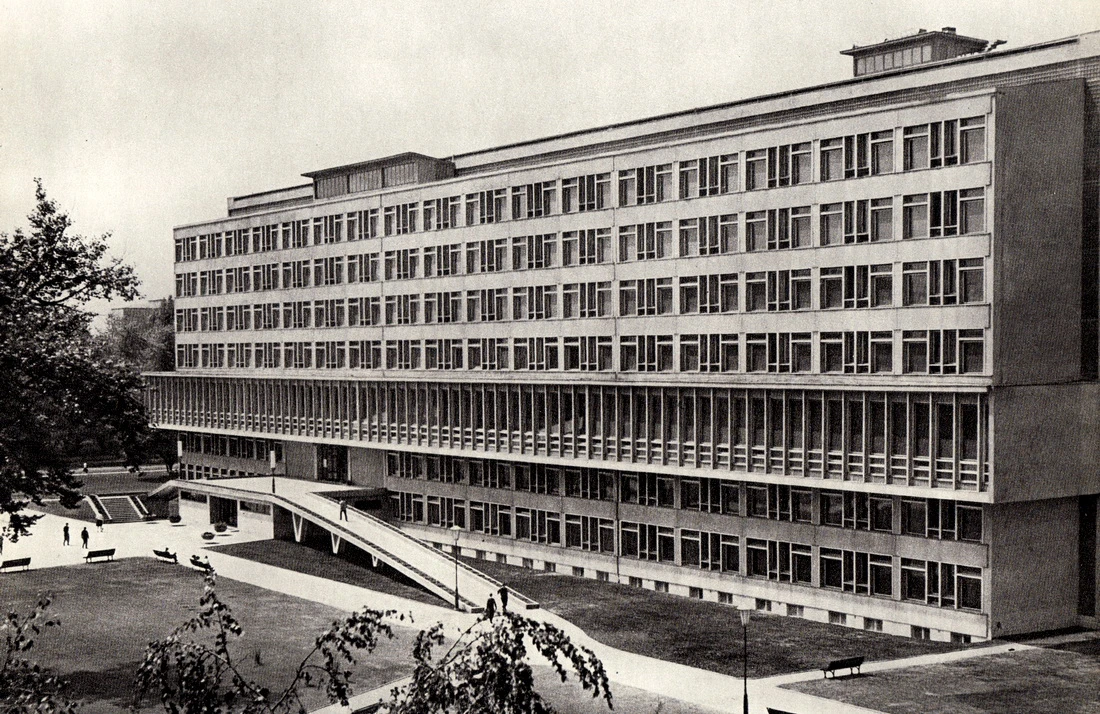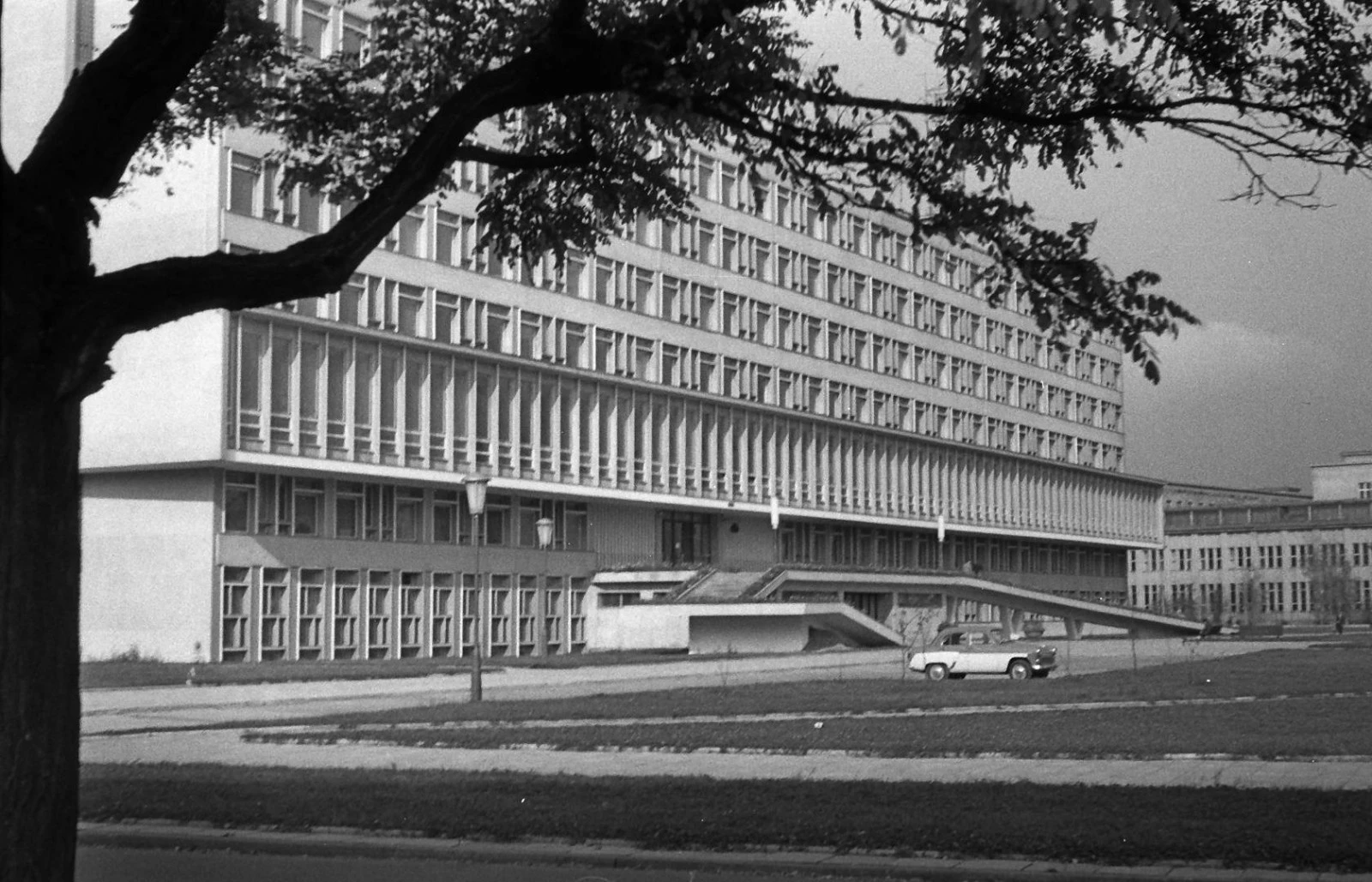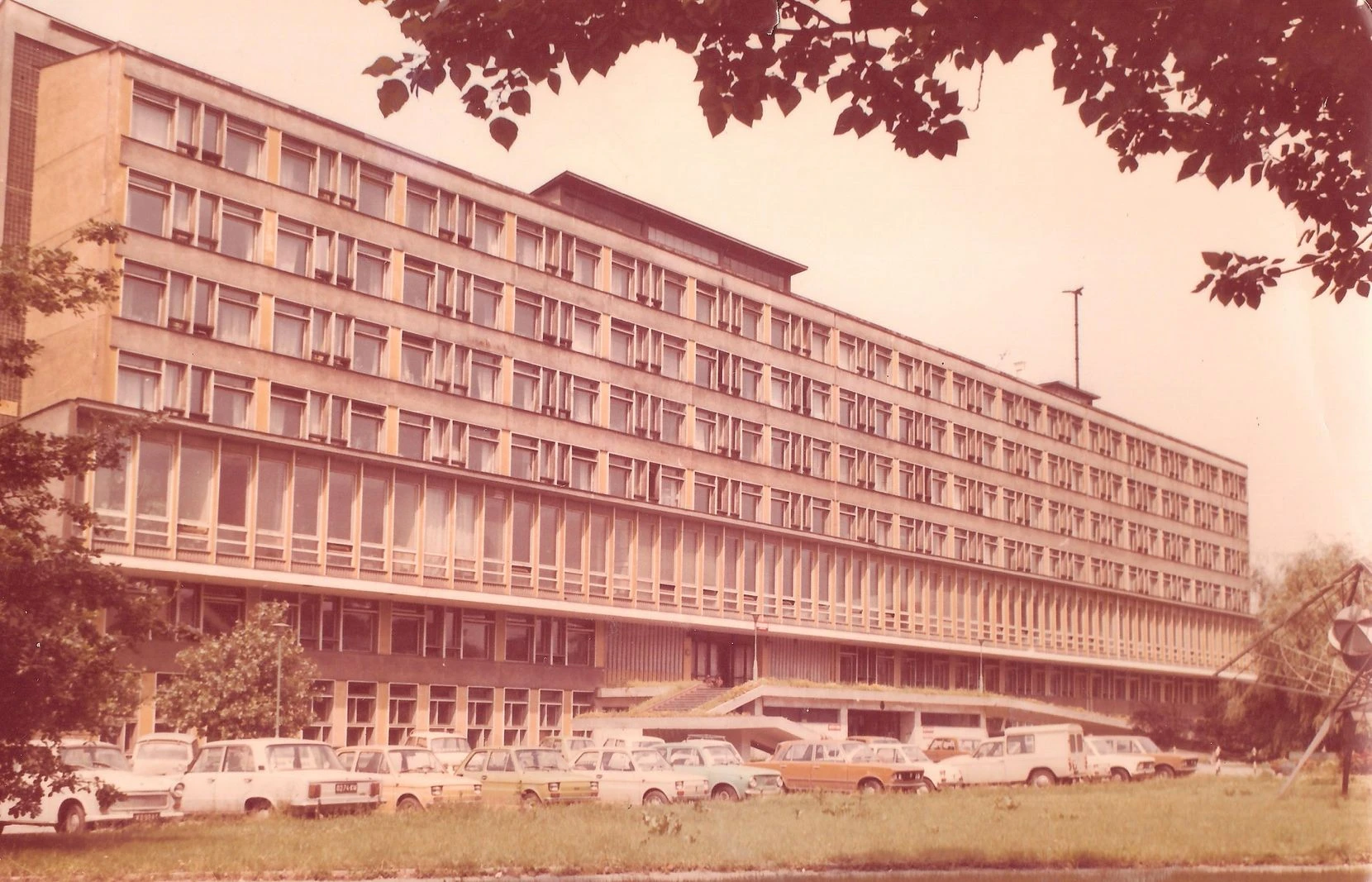History
The history of what was formerly known as the Faculty of Animal Husbandry can be traced back to the Agricultural Study at the Faculty of Philosophy of the Jagiellonian University, founded in 1890, where the Department of Domestic Animal Husbandry and Dairy Industry was established as early as 1891. It was headed by Leopold Adametz, the first Professor of animal husbandry at the Agricultural Study. In 1910, the Department of Animal Physiology and Nutrition was established and began its operations in 1917, when Feliks Rogozinski took over as the head. In 1922, the Second Department of Domestic Animal Husbandry and Dairy Industry was established.
In 1923, the Agricultural Study was renamed the Faculty of Agriculture of the Jagiellonian University. In 1924, the Department of Ichthyobiology and Fishery was established under the leadership of Teodor Spiczakow. In 1931, the First Department of Animal Husbandry and Dairy Industry was renamed the Department of General Animal Husbandry, and Teodor Marchlewski became its head in 1934. The Second Department of Domestic Animal Husbandry and Dairy Industry, however, which since 1925 was headed by Roman Prawocheński – the first honorary doctor of the Faculty of Animal Husbandry (1963) – was renamed the Department of Detailed Animal Breeding.
After the Second World War, the Department of Zoology and Applied Entomology was established in 1947, with Jan Zaćwilichowski as its head. In 1951, the Department of Zoohygiene (headed by Władysław Bielanski) was established, and the Department of Physiology and Nutrition Science (formerly the Department of Animal Physiology and Nutrition) was split into two new units, the Department of Animal Physiology (headed by Zygmunt Ewy) and Department of Animal Nutrition (headed by Zbigniew Kamiński). These four Departments, together with the Department of General Animal Breeding and the Department of Detailed Animal Breeding, formed the Institute of Animal Production at the Jagiellonian University’s Faculty of Agriculture.

On 1. September 1953, an independent College of Agriculture was established with its own Faculties: Agriculture and Animal Husbandry, to which the Departments forming the Institute of Animal Production were transferred from the former Faculty of Agriculture at the Jagiellonian University, and two new Departments were established, Animal Anatomy and Fishery. The structure of the newly established Faculty of Animal Husbandry therefore included eight Departments: Animal Anatomy, Fishery, Zoology, Animal Physiology, Animal Nutrition, Zoohygiene, General Animal Breding and Detailed Animal Breeding, where the latter had Breeding Divisions of Cattle, Poultry, Horses, Sheep and Pigs established. Prof. Dr. Juliusz Jakóbiec became the first Dean of the Faculty of Animal Husbandry.

In the early days (until 1963), the Faculty did not manage admissions of its students. The students would be recruited from the third year students of the Faculty of Farming (renamed the Faculty of Agriculture from 1958) who chose to specialise in animal breeding and were admitted to the first (Engineer’s) second cycle (Master’s) studies of animal husbandry. It was not until the 1963/64 academic year that the enrolment of students for the first year of the Faculty of Animal Husbandry began, and in the 1964/65 academic year, extramural Engineer’s and Master’s studies for working students were established.
For the first twenty years of the Faculty’s operation, a two-cycle system of studies was in force for full-time students (with 8 to 9 terms of the first cycle and 3 terms of the second cycle for those Engineers who graduated from the first cycle with the minimum average grade of 4.0). In the 1974/75 academic year, the common 5-year system of university studies was established. For several years, students were also taught at the Faculty’s Consultation Centres in Częstochowa (established in 1968) and Wojnicz (established in 1977). Since the 2006/2007 academic year, in accordance with the recommendation of the signatories of the Bologna Process, a three-cycle system of university education has been effective at the Faculty, comprising Engineer’s (bachelor’s), Master’s and PhD cycles.

From the very beginning, the Faculty of Animal Husbandry attached great importance to the training of research and teaching staff, which is why – just two years after its establishment – it was granted the right to confer the degree of Doctor of Agricultural Science. The intensive development of nationally and internationally recognised research staff resulted in the Faculty acquiring the right to confer the degree of Doctor of Agricultural Science in Animal Husbandry already in 1968.
The scientific and teaching output of the Faculty is the legacy of many outstanding scientists : Leopold Adametz (1861-1941) – the first professor of animal husbandry at the Jagiellonian University’s Agricultural Study; Walerian Klecki (1868-1920) – the author of valuable works on dairying and cattle breeding; Roman Prawocheński (1877-1965) – one of the most eminent Polish animal husbandry experts; Feliks Rogozinski (1879-1940) – an authority on animal physiology and nutrition; Teodor Spiczakow (1879-1946) – an ichthyobiologist and pioneer of research on fish diseases; Teodor Marchlewski (1899-1962) – Rector of the Jagiellonian University, co-founder of the College of Agriculture, and author of the textbook “Genetyka Zwierząt” (Animal Genetics); Stanisław Jełowicki (1899-1972) – an immense contributor to the development of sheep breeding in Poland; Juliusz Jakóbiec (1905-1968) – an expert in cattle breeding, and the organiser and first dean of the Faculty of Animal Husbandry; Władysław Bielański (1911-1982) – the founder of the Polish school of animal reproduction biology; Zygmunt Ewy (1913-1994) – author of the textbook “Zarys fizjologii zwierząt” (Outline of Animal Physiology), which saw many reprints; and Helena Bączkowska (1910-1995) – an outstanding specialist in poultry breeding and nutrition.
Over the course of its history, the Faculty of Animal Husbandry was continually developed and transformed, adapting its research and teaching profile to new challenges, refining its research subjects and expanding its teaching offer for the students. Transformed in 1998 into the Faculty of Animal Science, it became successively a Faculty of the Agricultural Academy (to which the College of Agriculture was renamed in 1972) and followed by the University of Agriculture since 2008 (whereas in 1978, on its 25th anniversary, the University was named after its patron, Hugo Kołłątaj).
Source: Text by Prof. dr. hab. Jerzy Niedziółka, “Jubileusz 45-lecia Wydziału Zootechnicznego Akademii Rolniczej im. Hugona Kołłątaja w Krakowie” (The 45th Anniversary of the Faculty of Animal Husbandry at the Hugo Kołłątaj Academy of Agriculture in Krakow), published in 1998 in a special issue of the Academy of Agriculture Information Bulletin.


